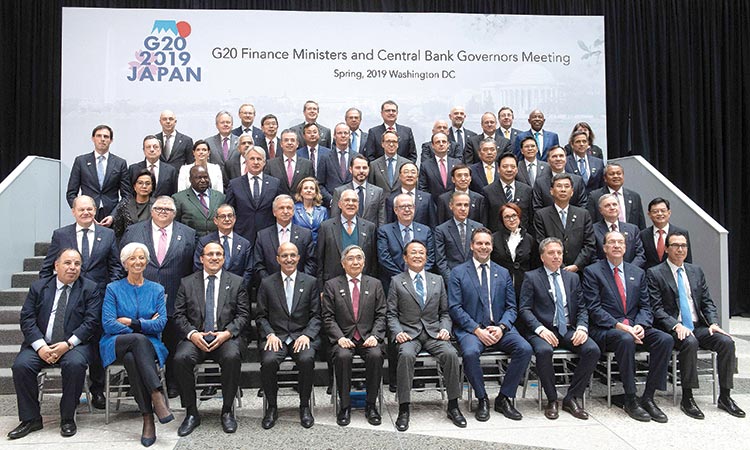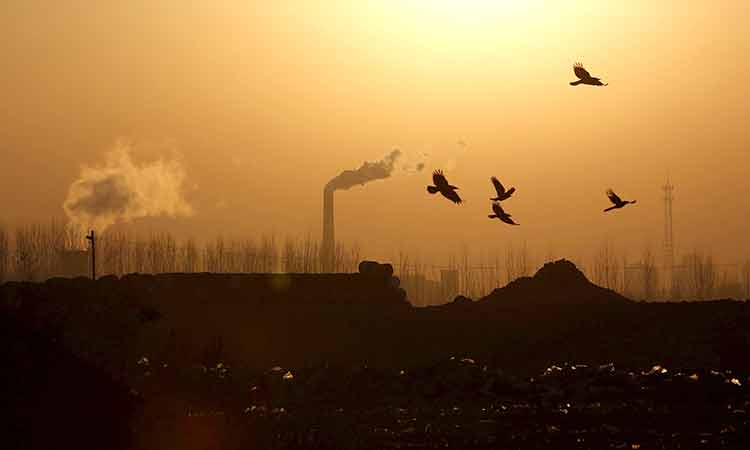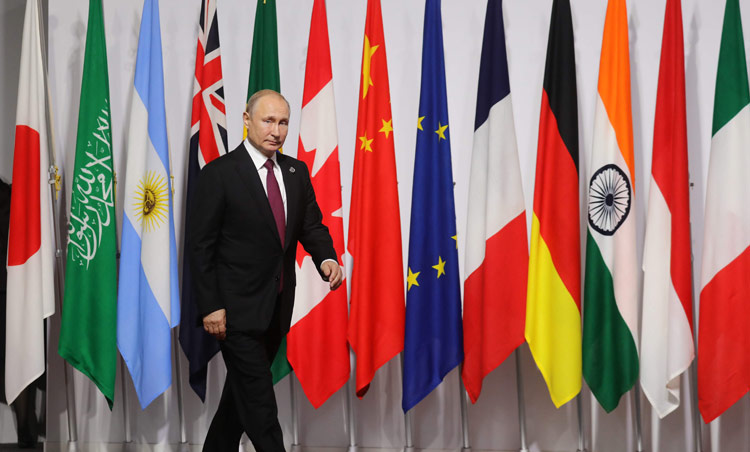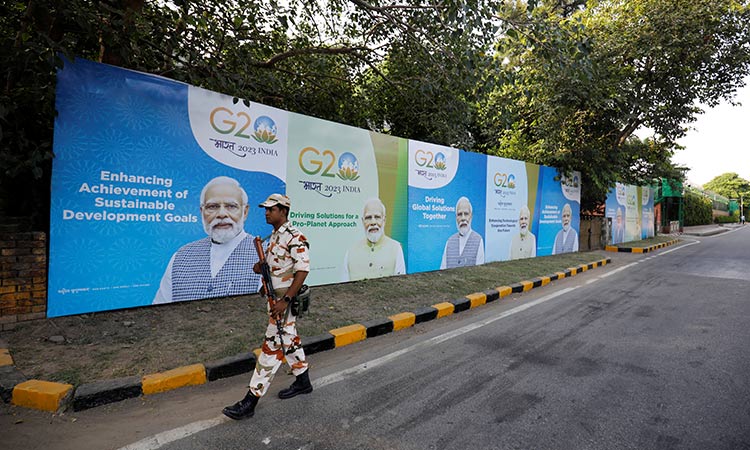World economic growth to pick up later this year: G20

Finance ministers, bank governors and other officials after a meeting in Washington. Agence-France Presse
Global finance leaders gathered from the spring meetings of the International Monetary Fund and the World Bank agree that the global economy has lost momentum this year. But they expect growth to pick up in the second half of 2019, as central bankers ease up on interest rates.
Still, a trade standoff between the United States and China threatens to dim the economic outlook.
“We must be mindful of an escalation of trade tensions,” Japanese Finance Minister Taro Aso told reporters on Friday.
Japan holds the chairmanship of the Group of 20 major economies.
The G-20 on Friday said that world economic growth sputtered late last year and early this year because of heightened trade tensions, turbulent financial markets and rising interest rates.
The IMF cut its forecast for global growth from 3.6% last year to 3.3% in 2019, the slowest since the recession year 2009, but it predicts growth will return to 3.6% in 2020.
Haruhiko Kuroda, head of the Bank of Japan, told reporters on Friday that the G-20 officials saw the IMF›s revised forecast as «highly likely» but said all the countries would need to do their part to boost growth.
Forecasters are worried about the US-China trade conflict.
The world›s two biggest economies have slapped tariffs on $350 billion worth of each other›s goods.
They are battling over US allegations that China deploys predatory tactics — including cybertheft and forcing foreign firms to hand over trade secrets − in a sharp-elbowed effort to challenge American technological dominance.
Financial markets have rallied this year on hopes that the two countries will reach a settlement.
Changyong Rhee, director of the International Monetary Fund›s Asia and Pacific Department, said at a briefing Friday that markets could falter if negotiators can›t reach a deal after all.
Even a US-China trade deal could create new problems, Rhee said.
If the Chinese agree to take in more imports from the United States, as widely expected, those purchases could come at the expense other countries that have been doing business with China. Rhee also expressed concern that China would give American companies «preferential access,» undercutting other countries and leading to «broader worries» about the future of free trade.
Rhee also said a US-China trade peace could prove «short-lived» if the two countries can›t reach a long-term deal that requires Beijing to improve protection of intellectual-property and make other economic reforms.
The risk that global economic growth could slow more than expected spurred a call on Friday from top finance officials for countries to overcome trade differences and opt for multilateral cooperation and «timely policy action.»
Policymakers from the Group of 20 industrialized countries are worried that the weakness evident in key economies could spread, especially if elevated trade tensions, such as those between the United States and China, escalate further.
«The balance of risks remains skewed to the downside,» Taro Aso said at a news conference following a meeting of G20 finance ministers and central bankers. «We recognize the risk that growth prospects might deteriorate if weakening in key economies feed into each other.»
Aso›s remarks dovetail with those of other officials gathered in Washington for the spring meetings of the World Bank and International Monetary Fund, many of whom fret that self-inflicted wounds from protectionist trade policies are to blame for the weakness. The week›s proceedings kicked off with another downgrade of global growth estimates from the IMF. Bank of Japan Governor Haruhiko Kuroda emphasised the need for countries to take steps to foster a more dynamic global economy.
There was a shared understanding among the G20 members that each country needs to take timely policy action,» Kuroda said at the news conference.
As the chair country of this year›s G20 proceedings, Japan wants to deepen talks on global imbalances - an effort to divert Washington›s attention from bilateral trade imbalances and stave off US pressure to negotiate two-way trade deals.
German Finance Minister Olaf Scholz, speaking at an event on the sidelines of the meetings in Washington, said the rules-based order of multilateralism is increasingly under threat and leaders must uphold international cooperation.
Scholz called on the United States to overcome trade differences with Europe, which erupted again this week when US President Donald Trump threatened to impose tariffs on $11 billion worth of European Union products, including commercial aircraft.
I believe this is a matter of principle, it›s not just about achieving some short-term economic gain. It›s not about the art of the deal,» Scholz said in reference to the best-selling business advice book credited to Trump.
Agencies







